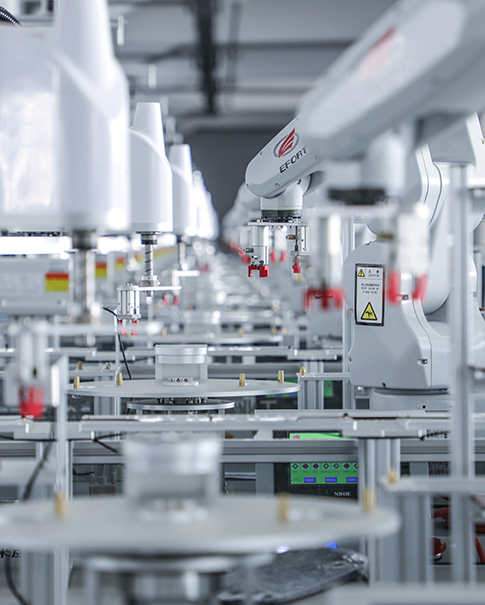Automating FSMA Compliance with AI & Robotics in Food Manufacturing
April 02,2025
The Importance of FSMA Compliance in Food Manufacturing
FSMA (Food Safety Modernization Act) is a critical regulatory framework aimed at ensuring the safety of food products throughout the supply chain. Enacted in 2011, FSMA focuses on preventing contamination and reducing the risk of foodborne illnesses by implementing preventive controls and traceability measures. For food manufacturers, compliance with FSMA is not only a legal obligation but also a strategic necessity to maintain consumer trust and protect their brand reputation .
Challenges in Achieving FSMA Compliance
Complying with FSMA can be complex and resource-intensive, particularly for companies with large-scale operations or those operating across multiple jurisdictions. Key challenges include:
Data Integration and Traceability: Ensuring seamless connectivity between different departments and systems to meet traceability requirements is a significant hurdle. Many companies struggle to integrate legacy systems with modern technologies, leading to inefficiencies and gaps in compliance .
Cost and Technical Barriers: Implementing advanced technologies such as blockchain, IoT, and AI can be costly. Additionally, integrating these systems requires specialized technical expertise, which may not be readily available within organizations .
Regulatory Complexity: FSMA has numerous rules and regulations that must be adhered to, including Hazard Analysis and Critical Control Points (HACCP), Preventive Controls, and Importer Responsibilities. Ensuring all aspects of the operation are compliant can be overwhelming without proper guidance .
How AI and Robotics Can Enhance FSMA Compliance
Automation technologies like AI and robotics offer promising solutions to overcome the challenges of FSMA compliance:
Enhanced Traceability: AI-powered systems can track products throughout the supply chain with unprecedented accuracy. For instance, blockchain-based platforms have been shown to reduce reporting time from days to seconds while ensuring 100% accuracy in product verification
Efficient Data Management: AI-driven automation tools can integrate data from various sources, eliminating silos and enabling real-time monitoring of production processes. This helps identify potential risks and take corrective actions promptly .
Streamlined Compliance Processes: Automation can simplify compliance tasks by automating routine checks and generating reports that meet regulatory requirements. This reduces the likelihood of human error and frees up resources for more strategic activities .
Improved Supply Chain Transparency: By leveraging IoT sensors and machine learning algorithms, companies can gain visibility into their entire supply chain, enabling proactive risk management and compliance monitoring .
Case Studies: Success Stories in Automating FSMA Compliance
Several companies have successfully implemented AI and robotics to enhance their FSMA compliance:
Campbell Soup Company: Through strategic planning and the use of traceability technologies, Campbell has improved its supply chain efficiency while meeting FSMA requirements. Their approach includes leveraging blockchain for secure data storage and AI for predictive analytics .
SMRTR Compliance Software: This software automates compliance tasks by systematically checking adherence to standards such as ISO 9001 and FSMA. It ensures high-quality delivery and packaging while minimizing human error .
IBM Food Trust Blockchain: IBM’s blockchain solution has helped companies like Walmart and Nestlé comply with FSMA more efficiently by providing real-time tracking and verification capabilities
Future Trends and Opportunities
As automation technologies continue to evolve, they will play an increasingly important role in shaping the future of FSMA compliance:
Increased Adoption of AI/ML: Predictive analytics and machine learning will become more prevalent in identifying potential risks and optimizing compliance processes.
Integration with Existing Systems: Seamless integration of AI-driven tools with existing quality management systems (QMS) will become essential for achieving comprehensive compliance.
Global Collaboration: With the increasing globalization of food supply chains, collaboration between governments, industry stakeholders, and technology providers will be crucial for developing unified standards and best practices for FSMA compliance .
Conclusion:
Automating FSMA compliance through AI and robotics offers a transformative opportunity for food manufacturers to streamline operations, reduce costs, and enhance consumer trust. By embracing these technologies, companies can not only meet regulatory requirements but also gain a competitive edge in the market. As the regulatory landscape continues to evolve, staying ahead of technological advancements will be key to maintaining compliance and driving innovation in the food industry.
 Network Supported
Network Supported